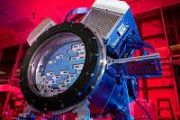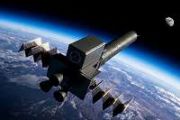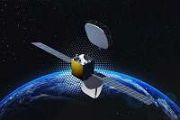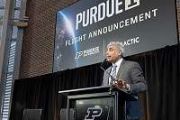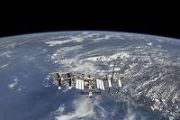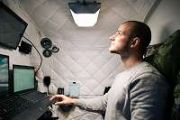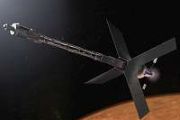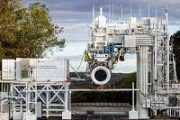
Copernical Team
Space Force sourcing conference helps drive capability development, readiness
 The first U.S. Space Force Global Force Management Sourcing Conference was held at Peterson Space Force Base, Oct. 22-24. It was hosted and led by U.S. Space Operations Command.
The conference brought together component field commands, Space Force leadership, field commands, mission area teams, and allies and partners to communicate requirements to influence USSF Force Generation, prioriti
The first U.S. Space Force Global Force Management Sourcing Conference was held at Peterson Space Force Base, Oct. 22-24. It was hosted and led by U.S. Space Operations Command.
The conference brought together component field commands, Space Force leadership, field commands, mission area teams, and allies and partners to communicate requirements to influence USSF Force Generation, prioriti After pause, NASAs Voyager 1 back communicating with mission team
 On Oct. 24, NASA reconnected with the Voyager 1 spacecraft after a brief pause in communications. The spacecraft recently turned off one of its two radio transmitters, and the team is now working to determine what caused the issue.
The transmitter shut-off seems to have been prompted by the spacecraft's fault protection system, which autonomously responds to onboard issues. For example, if
On Oct. 24, NASA reconnected with the Voyager 1 spacecraft after a brief pause in communications. The spacecraft recently turned off one of its two radio transmitters, and the team is now working to determine what caused the issue.
The transmitter shut-off seems to have been prompted by the spacecraft's fault protection system, which autonomously responds to onboard issues. For example, if Three-person crew enters China's Tiangong space station
 Three Chinese astronauts including the country's only woman spaceflight engineer entered the Tiangong space station on Wednesday following an early morning launch into orbit.
The Shenzhou-19 mission took off with its trio of space explorers at 4:27 am (2027 GMT Tuesday) from the Jiuquan Satellite Launch Center in northwest China, Xinhua and state broadcaster CCTV reported.
Among the crew
Three Chinese astronauts including the country's only woman spaceflight engineer entered the Tiangong space station on Wednesday following an early morning launch into orbit.
The Shenzhou-19 mission took off with its trio of space explorers at 4:27 am (2027 GMT Tuesday) from the Jiuquan Satellite Launch Center in northwest China, Xinhua and state broadcaster CCTV reported.
Among the crew China's second-generation factory owners go digital to combat challenges
 Dressed in a pristine white knit top, Robyn Qiu cut an incongruous figure in her parents' dusty, hangar-like metal hardware factory in eastern China as she gestured excitedly while an assistant filmed her on a smartphone.
The 29-year-old is one of many second-generation factory owners fighting to elevate the country's manufacturing sector, pitting digital native skillsets against the rising
Dressed in a pristine white knit top, Robyn Qiu cut an incongruous figure in her parents' dusty, hangar-like metal hardware factory in eastern China as she gestured excitedly while an assistant filmed her on a smartphone.
The 29-year-old is one of many second-generation factory owners fighting to elevate the country's manufacturing sector, pitting digital native skillsets against the rising SpaceX pushes back launch of 20 Starlink satellites in late scrub
 SpaceX scrubbed Tuesday's launch of 20 Starlink Internet satellites into orbit from the Vandenberg Space Force Base in California until Wednesday.
SpaceX will now attempt to launch the satellites at 7:07 a.m. EDT with a backup time of 7:21 a.m on Wednesday.
The launch was originally scheduled for 7:44 a.m. on Tuesday but was called off nearly an hour before the flight. SpaceX gav
SpaceX scrubbed Tuesday's launch of 20 Starlink Internet satellites into orbit from the Vandenberg Space Force Base in California until Wednesday.
SpaceX will now attempt to launch the satellites at 7:07 a.m. EDT with a backup time of 7:21 a.m on Wednesday.
The launch was originally scheduled for 7:44 a.m. on Tuesday but was called off nearly an hour before the flight. SpaceX gav NASA to restart Mentor-Protege program to help improve contractor diversity
 NASA said on Tuesday that it will restart its Mentor-Protégé Program for contractors on Friday to expand commercial markets with eligible small businesses.
The program seeks to expand inclusivity including AbilityOne, historically Black colleges and universities, and minority serving institutions to foster a more-diverse environment to collaborate with NASA.
NASA said the progr
NASA said on Tuesday that it will restart its Mentor-Protégé Program for contractors on Friday to expand commercial markets with eligible small businesses.
The program seeks to expand inclusivity including AbilityOne, historically Black colleges and universities, and minority serving institutions to foster a more-diverse environment to collaborate with NASA.
NASA said the progr Three-person crew blasts off for China's Tiangong space station
 Three Chinese astronauts including the country's only woman spaceflight engineer blasted off on a "dream" mission to the Tiangong space station in the early hours of Wednesday.
The new Tiangong team will carry out experiments with an eye to the space programme's ambitious goal of placing astronauts on the Moon by 2030 and eventually constructing a lunar base.
The Shenzhou-19 mission took
Three Chinese astronauts including the country's only woman spaceflight engineer blasted off on a "dream" mission to the Tiangong space station in the early hours of Wednesday.
The new Tiangong team will carry out experiments with an eye to the space programme's ambitious goal of placing astronauts on the Moon by 2030 and eventually constructing a lunar base.
The Shenzhou-19 mission took Three-person crew to blast off for China's Tiangong space station
This request seems a bit unusual, so we need to confirm that you're human. Please press and hold the button until it turns completely green. Thank you for your cooperation!
Press and hold the button
If you believe this is an error, please contact our support team.
185.132.36.159 : 016282ac-ce30-4500-b033-dbc10440
Satellites making up China's 'Thousand Sails' found to be exceeding brightness limits
This request seems a bit unusual, so we need to confirm that you're human. Please press and hold the button until it turns completely green. Thank you for your cooperation!
Press and hold the button
If you believe this is an error, please contact our support team.
185.132.36.159 : 7af6fda9-2d4e-488e-aaee-996a82ce
Add astronaut nutrition to the list of barriers to long-duration spaceflight
This request seems a bit unusual, so we need to confirm that you're human. Please press and hold the button until it turns completely green. Thank you for your cooperation!
Press and hold the button
If you believe this is an error, please contact our support team.
185.132.36.159 : 19d76d50-519f-4580-b068-9928289c


